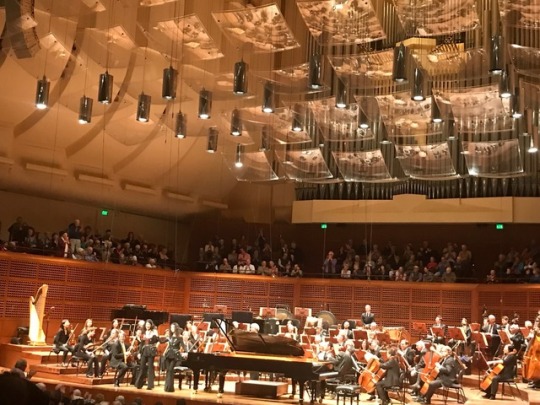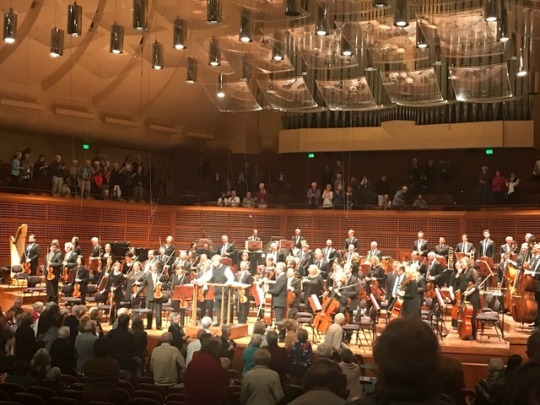#Taneyev oresteia
Quote
Good morning (and for American followers, Happy Thanksgiving!) and welcome back to a week of Russian composers. While we have focused more on Russian nationalism and 19th century Orientalism, there were many composers at the time who went against the tide. So today I want to side-step to one of my favorite ‘unusual’ cases; Sergei Taneyev. While the other great Russians worked on orchestral music, he preferred chamber music. He also focused more on counterpoint and followed a “German” influence (similar to Tchaikovsky’s musical aesthetic, which earned him criticism from the contemporary Five). And at a time where Russian opera was mostly fairy tales with fantastic characters and situations, or detailed episodes in Russian history, Taneyev wrote an operatic version of The Oresteia, a trilogy of tragedies by Aeschylus; Agamemnon, The Libation Bearers, and The Eumenides. While writing the Oresteia overture, Taneyev felt that the music was too lengthy and gave away too many of the main dramatic moments, so he substituted it for a modest prelude, and flushed the overture out into a symphonic poem. The music is episodic, but it shows more of a Wagnerian influence with its rising and falling climaxes, full of intensity and drama.
Stay tuned for more Russian composers this week on musicainextenso
– Nick O., guest editor
musicainextenso: Good morning (and for American followers, Happy Thanksgiving!) and welcome back to a week of Russian composers. While we have focused more on Russian nationalism and 19th century Orientalism, there were many composers at the time who went against the tide. So today I want to side-step to one of my favorite ‘unusual’ cases;…
0 notes
Quote
Good morning (and for American followers, Happy Thanksgiving!) and welcome back to a week of Russian composers. While we have focused more on Russian nationalism and 19th century Orientalism, there were many composers at the time who went against the tide. So today I want to side-step to one of my favorite ‘unusual’ cases; Sergei Taneyev. While the other great Russians worked on orchestral music, he preferred chamber music. He also focused more on counterpoint and followed a “German” influence (similar to Tchaikovsky’s musical aesthetic, which earned him criticism from the contemporary Five). And at a time where Russian opera was mostly fairy tales with fantastic characters and situations, or detailed episodes in Russian history, Taneyev wrote an operatic version of The Oresteia, a trilogy of tragedies by Aeschylus; Agamemnon, The Libation Bearers, and The Eumenides. While writing the Oresteia overture, Taneyev felt that the music was too lengthy and gave away too many of the main dramatic moments, so he substituted it for a modest prelude, and flushed the overture out into a symphonic poem. The music is episodic, but it shows more of a Wagnerian influence with its rising and falling climaxes, full of intensity and drama.
Stay tuned for more Russian composers this week on musicainextenso
– Nick O., guest editor
musicainextenso: Good morning (and for American followers, Happy Thanksgiving!) and welcome back to a week of Russian composers. While we have focused more on Russian nationalism and 19th century Orientalism, there were many composers at the time who went against the tide. So today I want to side-step to one of my favorite ‘unusual’ cases;…
0 notes
Quote
Good morning (and for American followers, Happy Thanksgiving!) and welcome back to a week of Russian composers. While we have focused more on Russian nationalism and 19th century Orientalism, there were many composers at the time who went against the tide. So today I want to side-step to one of my favorite ‘unusual’ cases; Sergei Taneyev. While the other great Russians worked on orchestral music, he preferred chamber music. He also focused more on counterpoint and followed a “German” influence (similar to Tchaikovsky’s musical aesthetic, which earned him criticism from the contemporary Five). And at a time where Russian opera was mostly fairy tales with fantastic characters and situations, or detailed episodes in Russian history, Taneyev wrote an operatic version of The Oresteia, a trilogy of tragedies by Aeschylus; Agamemnon, The Libation Bearers, and The Eumenides. While writing the Oresteia overture, Taneyev felt that the music was too lengthy and gave away too many of the main dramatic moments, so he substituted it for a modest prelude, and flushed the overture out into a symphonic poem. The music is episodic, but it shows more of a Wagnerian influence with its rising and falling climaxes, full of intensity and drama.
Stay tuned for more Russian composers this week on musicainextenso
– Nick O., guest editor
musicainextenso: Good morning (and for American followers, Happy Thanksgiving!) and welcome back to a week of Russian composers. While we have focused more on Russian nationalism and 19th century Orientalism, there were many composers at the time who went against the tide. So today I want to side-step to one of my favorite ‘unusual’ cases;…
0 notes
Quote
Good morning (and for American followers, Happy Thanksgiving!) and welcome back to a week of Russian composers. While we have focused more on Russian nationalism and 19th century Orientalism, there were many composers at the time who went against the tide. So today I want to side-step to one of my favorite ‘unusual’ cases; Sergei Taneyev. While the other great Russians worked on orchestral music, he preferred chamber music. He also focused more on counterpoint and followed a “German” influence (similar to Tchaikovsky’s musical aesthetic, which earned him criticism from the contemporary Five). And at a time where Russian opera was mostly fairy tales with fantastic characters and situations, or detailed episodes in Russian history, Taneyev wrote an operatic version of The Oresteia, a trilogy of tragedies by Aeschylus; Agamemnon, The Libation Bearers, and The Eumenides. While writing the Oresteia overture, Taneyev felt that the music was too lengthy and gave away too many of the main dramatic moments, so he substituted it for a modest prelude, and flushed the overture out into a symphonic poem. The music is episodic, but it shows more of a Wagnerian influence with its rising and falling climaxes, full of intensity and drama.
Stay tuned for more Russian composers this week on musicainextenso
– Nick O., guest editor
musicainextenso: Good morning (and for American followers, Happy Thanksgiving!) and welcome back to a week of Russian composers. While we have focused more on Russian nationalism and 19th century Orientalism, there were many composers at the time who went against the tide. So today I want to side-step to one of my favorite ‘unusual’ cases;…
0 notes
Video
youtube
Good morning (and for American followers, Happy Thanksgiving!) and welcome back to a week of Russian composers. While we have focused more on Russian nationalism and 19th century Orientalism, there were many composers at the time who went against the tide. So today I want to side-step to one of my favorite ‘unusual’ cases; Sergei Taneyev. While the other great Russians worked on orchestral music, he preferred chamber music. He also focused more on counterpoint and followed a “German” influence (similar to Tchaikovsky’s musical aesthetic, which earned him criticism from the contemporary Five). And at a time where Russian opera was mostly fairy tales with fantastic characters and situations, or detailed episodes in Russian history, Taneyev wrote an operatic version of The Oresteia, a trilogy of tragedies by Aeschylus; Agamemnon, The Libation Bearers, and The Eumenides. While writing the Oresteia overture, Taneyev felt that the music was too lengthy and gave away too many of the main dramatic moments, so he substituted it for a modest prelude, and flushed the overture out into a symphonic poem. The music is episodic, but it shows more of a Wagnerian influence with its rising and falling climaxes, full of intensity and drama.
Stay tuned for more Russian composers this week on musicainextenso
- Nick O., guest editor
#Taneyev#music#classical#opera#tone poem#symphonic poem#opera music#orchestra#orchestra music#romantic#romanticism#romantic music#russian music#classical music#Taneyev oresteia overture#Taneyev oresteia#Sergei Taneyev
16 notes
·
View notes
Video
youtube
Sergei Taneyev: Overture to the Oresteia Op.6 (1889) Novosibirsk Academic Symphony Orchestra conducted by / Orquesta Sinfónica Académica de Novosibirsk dirigida por Thomas Sanderling.
1 note
·
View note
Photo




Taneyev: Oresteia Overture
Bruch: Concerto for Two Pianos
Tchaikovsky: Symphony no.2
Semyon Bychkov, Conductor
Katia and Marielle Labeque, Pianos
엄청났던 콘서트. 근래 본 콘서트 중 가장 훌륭했다. 지휘자의 카리스마와 박력넘치는 스타일에 샌프란 심포니의 훌륭한 연주실력이 더해지니 진짜 대단하다 했던 콘서트. 차이코프스키 끝나고나서는 완전 내가 진이 다 빠졌고 입이 절로 떡 벌어졌다.
평일 오후 공연이다보니 관객들 연령대가 대체로 높았다. 나는 이 시니어들이 그냥 시간맞고 해서 단체로 관람오신 줄 알았는데 옆에서 뒤에서 이야기하는 걸 슬쩍 들어보니 클래식 음악 취향에 엄청난 내공을 가진 분들이셨다. 자리에서 일어나는 게 쉽지 않은 할머니 할아버지들 지팡이 찾아 짚고서 다들 기립박수 보내시고 힘들었지만 올 만 했다라고 하시는데 진짜 공감.
사실 데이비스 홀 위치가 썩 좋지않다보니 왠만한 경우가 아니고서는 잘안가게 된다. 시청 옆에 위치한 이 곳은 부랑자들이 너무 많고(뭐 대부분의 미국 대도시들이 그렇지만) 깨끗하지 못하며 치안이 좋지않다. 사정이 넉넉해서 공항에서 자동차타고 공연장 앞에 바로 내려서 보고가면 뭐 괜찮겠지만 나는 십달러 내고 지하철 타고 와 보는 입장이다보니 이 불쾌함 더러움 다 참아가며 왔다갔다 한다. 그래도 이렇게 훌륭한 시간을 보내고 나오면 이거 다 감내할 정도로 가슴이 벅차오르고 즐거우니 또 가는거겠지.
9 notes
·
View notes
Video
youtube
Arioso of Cassandra Opera «Oresteia» (1894) Compositor : Sergei Ivanovich Taneyev (1856 - 1915) Ludmila Tcherkassova (2012) Piano : Nicolas Takov Theater : "Les Déchargeurs" in Paris - France Director : Romain François PELTIER
0 notes